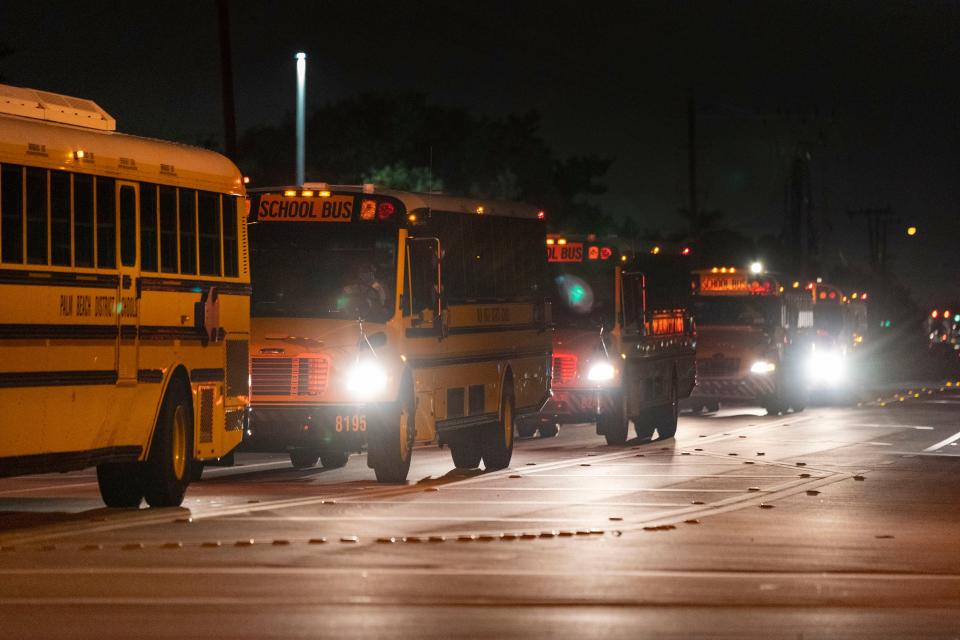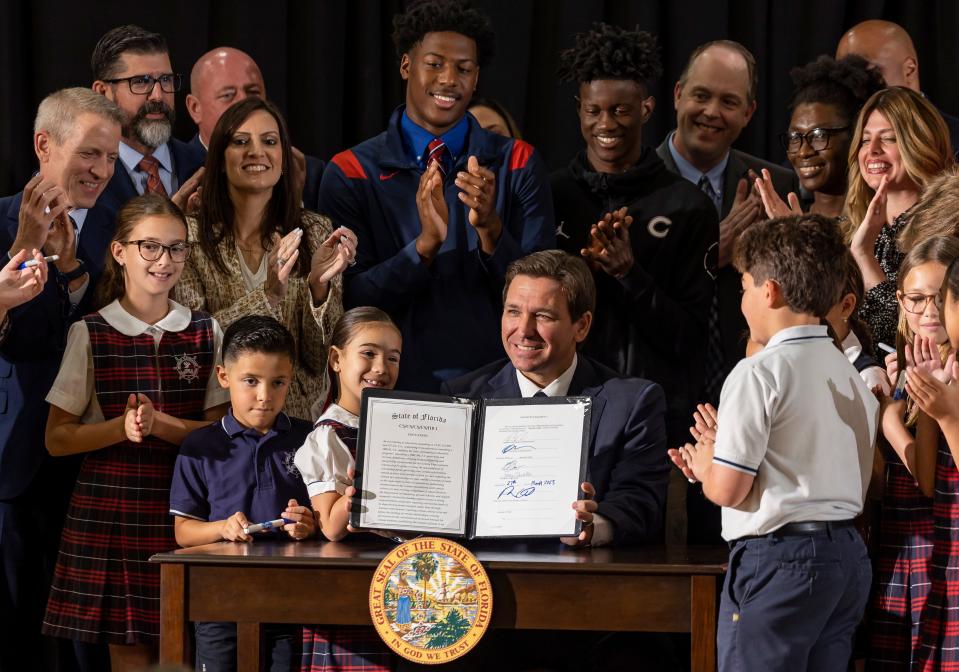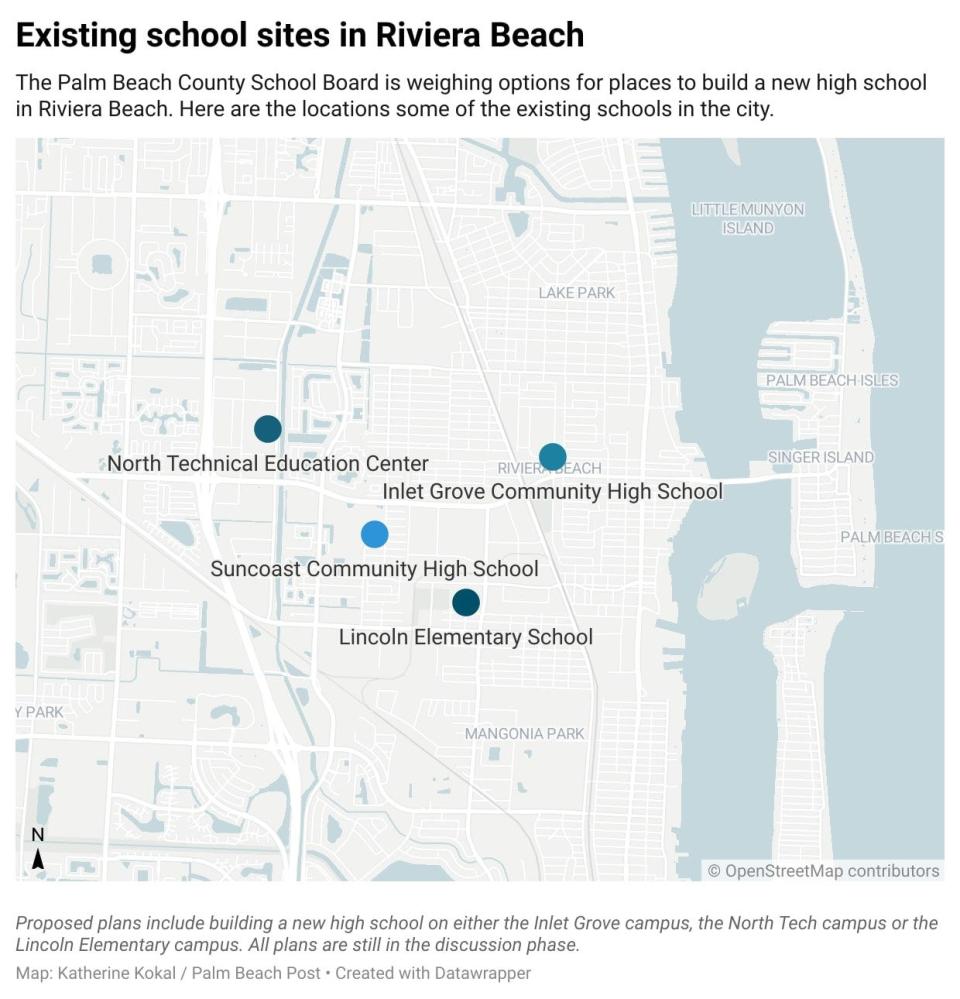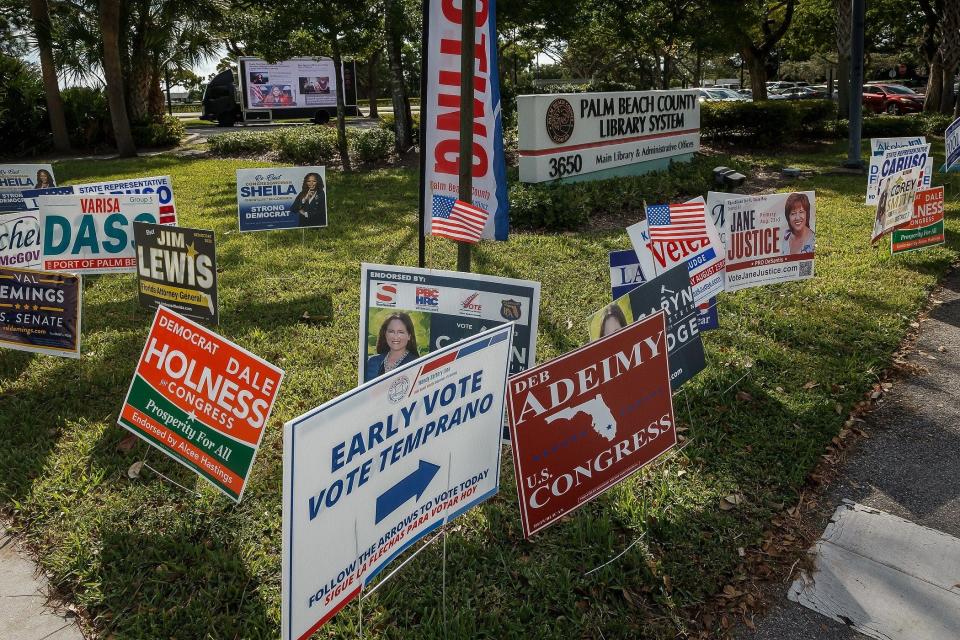Later start times, new graduation rules: 6 laws affecting Palm Beach County students
Florida legislators have passed several bills that will affect life in classrooms across the state, from later school start times to limiting which gender pronouns adults can use at school.
The legislative session, which ended May 5, resulted in six major pieces of legislation that Palm Beach County school leaders now have to examine and put into place.
Those bills include later start times for middle and high schoolers, a universal voucher system for students to use taxpayer money for private school tuition, cost-sharing for construction projects at charter schools, the potential for partisan school board elections and a sweeping bill that extends the prohibition of classroom instruction on gender identity and sexual orientation to eighth grade. New changes to graduation requirements also helped about 700 Palm Beach County students who were told last month they wouldn't graduate.
Not all laws take immediate effect.
The change to start times won't go into effect until the 2026-27 school year, and the bill that calls for partisan school board elections has to go to Florida voters for the final say. The expansion of the so-called "Don't Say Gay" law is awaiting action from Gov. Ron DeSantis.
More: How did your Palm Beach County state lawmakers vote on broadening school vouchers?
Best of the best: Dwyer Awards 2023: Seven teachers honored have class pets, science labs and school gardens
More news: Last-minute change in Florida graduation requirements helps 700 Palm Beach County seniors
Here's a breakdown of six major pieces of 2023 Florida education legislation and how they will impact Palm Beach County students:
1. Later school start times for Palm Beach County middle, high schoolers
Summary: The law, HB 733, requires that middle school classes don't begin earlier than 8 a.m. and that high school classes begin no earlier than 8:30 a.m.
Status: Does not go into effect until July 1, 2026.
What it means for Palm Beach County students: Palm Beach County school leaders have huge concerns about the new law, which they say will challenge the school district's already strained bus system.
Currently, most high schools in Palm Beach County start at 7:30 a.m., and most middle schools start between 9 and 9:30 a.m. Most elementary schools start about 8 a.m. The district's transportation department takes advantage of the phased-in start to the school day by using the same bus and driver to run routes to different kinds of schools throughout the morning. For example a driver might start the morning with a high school route, finish it and then do a middle school route.
Joseph Sanches, the district's chief operating officer, said in April that the district will need more bus drivers and more buses when middle and high schools start later because fewer routes could be stacked back-to-back, and instead would have to be run at the same time. The change will also mean a shorter work day for bus drivers.
"Our bus drivers can barely afford to live in Palm Beach County as it is. If we reduce their hours, reduce their pay, we'll probably have even more bus drivers leave us," Sanches said.
In April, the district had more than 100 open jobs for bus drivers.

2. Florida's expanded voucher program means a pause on school construction in Palm Beach County
Summary: The law, HB 1, establishes a universal voucher program so Florida families, regardless of their income, can use taxpayer dollars to pay for up to $8,000 yearly in tuition at private schools that accept vouchers.
Status: Effective July 1.

What it means for Palm Beach County students: Currently, the school district spends $80 million each year on existing vouchers to private schools, which were limited to poorer families. The new voucher program, depending on how the number of students who participate is capped, could cost the district between $40 million and $200 million more per year, according to Superintendent Mike Burke.
In anticipation of the program, Burke recommended the school board pause major construction projects at some schools. The projects include consideration of an elementary school in the Westlake area and a new high school for the city of Riviera Beach.
Also likely to be paused is the next phase of renovations at the historic Roosevelt and Carver high schools. "Phase two" of renovations at Roosevelt include a proposed African-American history museum, library and health-care clinic.
3. Public schools will share money for construction projects with charter schools
Summary: The law, HB 1259, requires the school district to share part of its capital construction money set aside for its 10-year capital construction plan with eligible charter schools. Charter schools are public schools that operate as schools of choice. They are exempt from significant state and local operating and management regulations, but they cannot charge tuition or be affiliated with religious institutions.
Status: Goes into effect July 1, but allows the district to take five years to implement fully.
What it means for Palm Beach County students: The law requires the school district to share between $189 million and $427 million over the next 10 years with charter schools for construction projects.
This legislation is separate from a 2021 dustup in Palm Beach County in which charter schools sued the school district over its refusal to share dollars from a property tax referendum, which voters just renewed in November. The district lost that court case.
The charter school cost-sharing is also a big factor in the district's decision to pause some school construction projects.
"The district has to borrow money to do these projects, and we shouldn’t borrow money if we’re going to lose a chunk to charter schools," Burke said in April.

4. Will Palm Beach County school board candidates need to run as Republicans or Democrats?
Summary: House Joint Resolution 31 proposes amendments to Florida's Constitution to require members of school boards be elected in partisan elections. Candidates would need to run as Republicans, Democrats or Independents.
Status: Ordered April 19 by the legislature, but must be approved by Florida voters by ballot measure in 2024 because it would be a change to the state constitution. If passed by voters, the change would go into effect Nov. 3, 2026.
What it means for Palm Beach County students: Palm Beach County's school board, along with many other locally elected offices in the county, are currently nonpartisan. Candidates shy away from labeling themselves along party lines in elections, although official party organizations in Palm Beach County have donated to school board candidates in the past.
School board members who have spoken with The Post in the past worry that partisan elections could make choosing school board members more contentious and less focused on issues affecting students.

5. Expansion of so-called 'Don't Say Gay' to 8th grade, pronouns that align with biological sex for adults and students
Summary: The bill, HB 1069, requires the state Department of Education to approve all materials used in health and reproductive education, extends the prohibition on classroom instruction on sexual orientation and gender identity from kindergarten to third grade to prekindergarten to eighth grade and prohibits school boards from enforcing requirements that school staff, teachers or students be referred to using gender pronouns that do not align with their biological sex.
Status: Awaiting action by DeSantis.
What it means for Palm Beach County students: School Board Erica Whitfield said the bill would "out" transgender teachers and staff members who have been using their preferred pronouns at schools for several years. Last year, the board was required by the state to drastically cut its equity statement and update its LGBTQ+ critical support guide.
"My biggest concern is just not to alienate long-serving, wonderful teachers that we've had who have been working for us and not alienate other people from wanting to come work for us," she said. "It's not the direction we need to go in."
The school board will get another update on how to implement the bill if it is approved and goes into effect July 1.
6. Change to graduation requirements leaves 2,000 Palm Beach County seniors in limbo
Summary: The law, HB 1537, delays some stricter graduation requirements another year after last-minute interventions by districts across the state. The change once again allows this year's seniors, who were freshmen at the start of the COVID-19 pandemic, to qualify for a diploma using last year's ACT and SAT scores if they don't achieve passing scores on earlier assessments.
But the change didn't help all Palm Beach County students. Legislators still raised the bar on Florida's Postsecondary Education Readiness Test (PERT) — meaning seniors taking the exam in order to graduate will need to score 114 instead of the previously accepted score of 97.
Status: Took immediate effect May 9.
What it means for Palm Beach County students: More than 2,800 Palm Beach County students were notified in April that they would not be able to graduate in May due to the new requirements.
Since the amendment, about 700 students have qualified for graduation. Ceremonies began in Palm Beach County on May 11.
Now, Palm Beach County teachers are frantically testing those at-risk seniors every day until the end of the year in hopes the students pass the PERT exams and graduate, according to at least educator who spoke with The Palm Beach Post.
Are you or is someone you know at risk of not graduating?
The Palm Beach Post is looking to speak with students whose plans have changed due to the new graduation requirements.
Please fill out the form below and a reporter will contact you. Your name and information will not be published without your permission and the permission of your parent or guardian.
Katherine Kokal is a journalist covering education at The Palm Beach Post. You can reach her at kkokal@pbpost.com. Help support our work; Subscribe today!
This article originally appeared on Palm Beach Post: School start times, partisan school boards, vouchers: New Florida laws

